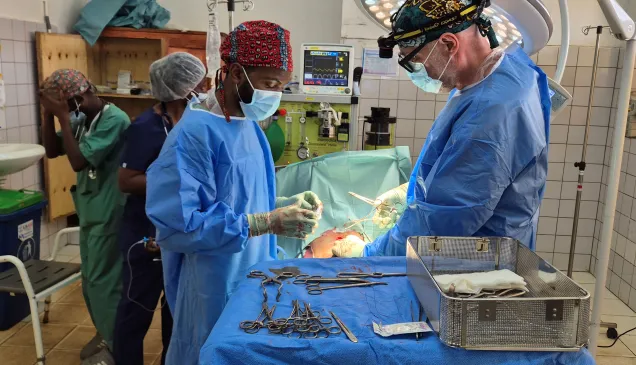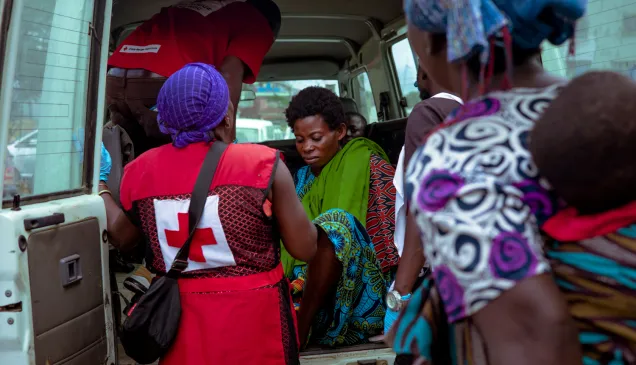Yumbi, DRC: in the aftermath of violence
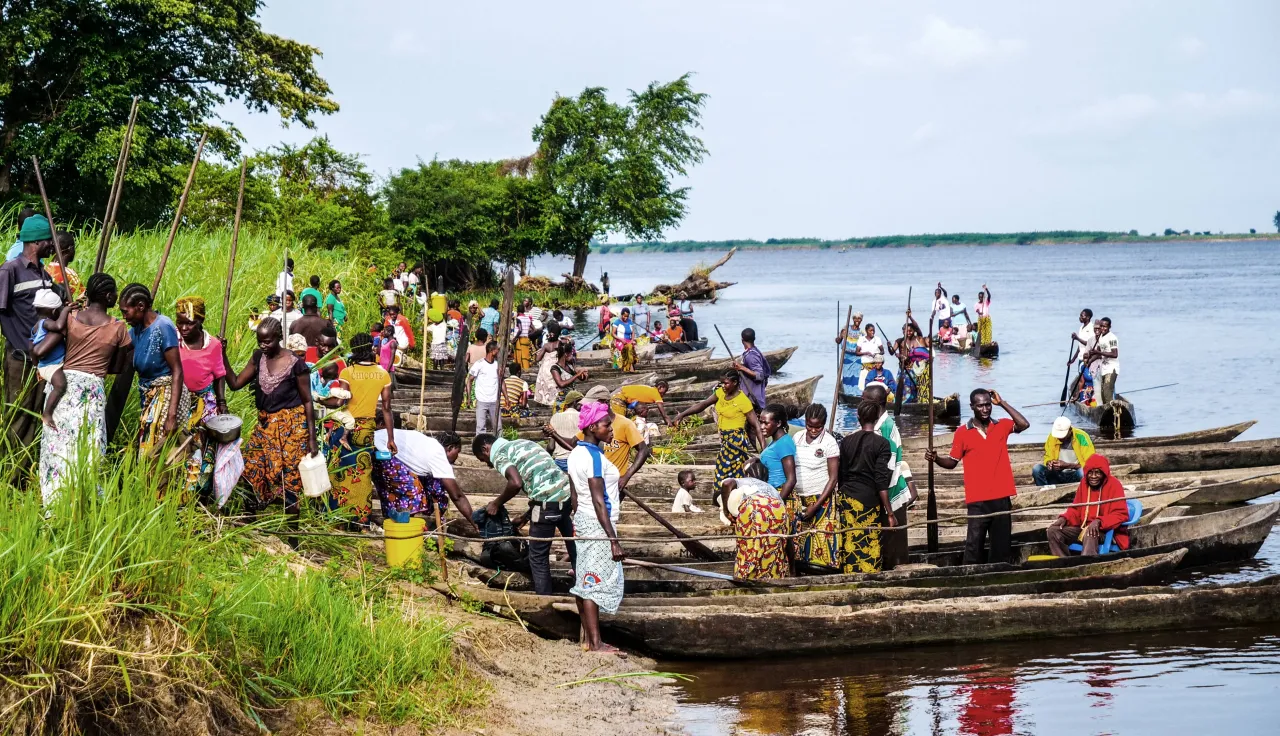
Hundreds of people died when intercommunity violence broke out in December 2018 in Yumbi, Democratic Republic of Congo, according to the United Nations. Four months later, people are struggling to return to a normal life in this town on the banks of the Congo River, some 300 kilometres north of Kinshasa.
Moseka, a fifty-year-old woman, is still in shock. Three of her grandchildren died when her house was set on fire. She was left with burns on her hands, arms and face, but the physical wounds are nothing compared to her emotional distress. She has been living with her son ever since. "I sleep on the floor every night, with only a sheet beneath me," she said. "For three months now, I have to be cared for like a baby. I was left with nothing."
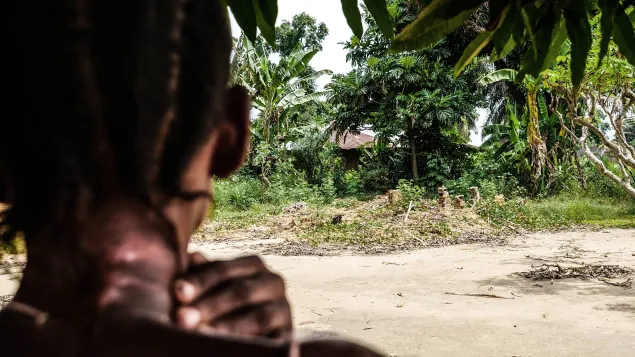
Moseka’s hands, arms and face have been burned when her house was deliberately set on fire.
Many victims of the attacks have sought refuge on small islands in the river. Calvin Mastaki, who oversees relief activities for the International Committee of the Red Cross (ICRC) in the region, went to Yumbi in late February to evaluate their needs. "The people there are sleeping in the open air or in fishing huts built right on the sand. The heat is blistering," he reported.
Things are not much better for those who stayed in town. "We fishermen can't feed our families anymore," a man named Samuel told Mr Mastaki. Standing in the sand with arms folded, he looked crushed. "We've lost our fishing boats and equipment. We don't know what to do."
An aid shipment was sent from Kinshasa following the evaluation carried out by Mr Mastaki and his team. Between 13 and 18 March 2019, the ICRC and the Red Cross of the Democratic Republic of Congo distributed supplies to over 15,000 people in spite of considerable logistic challenges. The region is very isolated, practically inaccessible except via the Congo River. The aid barges took seven days to reach Yumbi.
Wounds still not healed
It has been months now since the attacks, but trust between the fishing and farming communities has not yet been restored. The two groups, who used to exchange goods, now avoid each other. "They grew rice and cassava, we caught fish. We used to trade at the market," Samuel explained. "But everything is different now. We keep to ourselves." Many farmers are also suffering, having missed the start of the season in February owing to a lack of seed and tools, but also because of the violence that kept them from their fields.
Although the fighting has subsided over time, food is still scarce. Business with Kinshasa has also ground to a halt. Marianne, a shopkeeper from the capital, used to make regular trips to Yumbi to buy fish. Unluckily for her, the fighting broke out while she was there. Her three-year-old daughter was killed, the 150 dollars she'd brought with her were stolen, and she is now stuck in Yumbi with no money for the trip back. She is staying with a local family until she finds a way to return home.
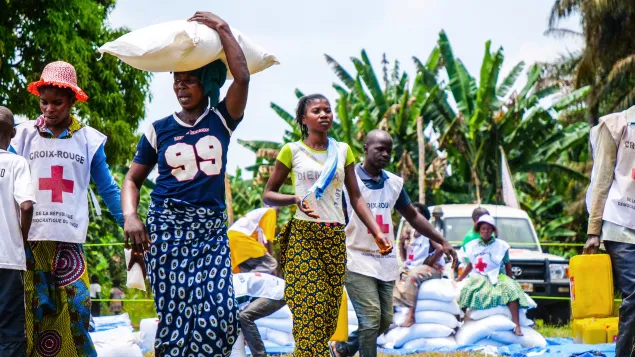
15,000 people received food.
Devastating intercommunity violence broke out between 16 and 18 December 2018 in Yumbi, Mai-Ndombe province, Democratic Republic of Congo. According to the United Nations, over 500 people were killed and 16,000 displaced. Schools, health centres and hundreds of houses were burned or otherwise destroyed. People have gradually begun to return to their homes as the situation has stabilized, but living conditions are still extremely difficult.

